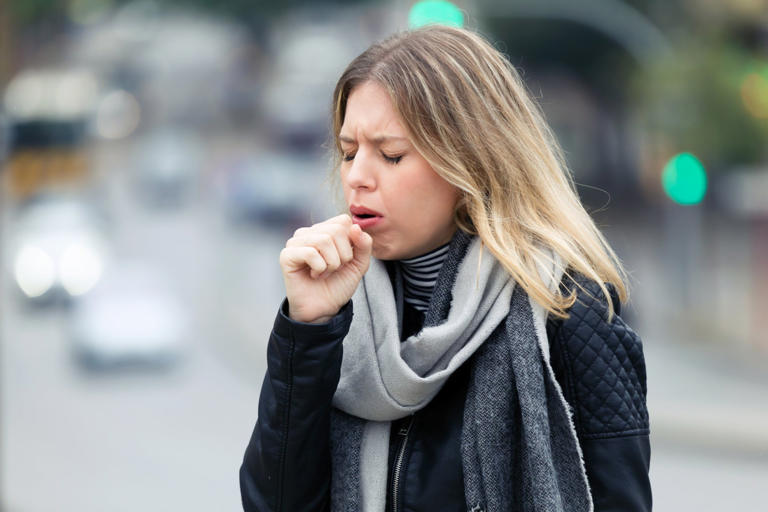
Cases of whooping cough are spiking in the UK, as experts warn of the serious impacts the disease can have on sufferers.
The highly contagious infection, also known as pertussis, can be particularly dangerous for young children.
Data from the UK Health Security Agency (UKHSA) shows more than 700 people may have been infected in England and Wales between July and the end of November – up from 217 over the same period last year.
Cases are particularly high in the south-east and north-west of England, as well as the West Midlands.
However, the UKHSA has said lab-confirmed cases of whooping cough are still lower than pre-pandemic years.
Health chiefs have said it is especially important for pregnant women to get vaccinated to protect their baby.
According to the NHS, whooping cough can make young babies very unwell, and in severe cases they can die.
The vaccine is typically given to woman who are between 16 and 32 weeks into their pregnancy, but it can be given up until they go into labour.
What is whooping cough?
Whooping cough is a bacterial infection of the lungs and breathing tubes, and due to its main symptom of coughing it spreads very easily.
It can initially seem like a cold, with symptoms like a runny nose and sore throat among the first to appear.
But later, it can develop into bouts of coughing that last for several minutes – and get worse when the sufferer is trying to sleep at night.
The name comes from the gasp for breath between coughs, which can make a ‘whoop’ sound.
Young children may turn blue or grey due to difficulty breathing.
The disease can last for weeks or even months, giving it the nickname ‘the 100-day cough’.
Health service figures show babies born to vaccinated women had a 91% reduced risk of becoming ill with the disease in the first few weeks after birth.
Dr Gayatri Amirthalingam, a consultant epidemiologist at UKHSA, said: ‘Before the introduction of routine immunisation, whooping cough used to affect tens of thousands of people.
‘Thanks to vaccination this has dropped dramatically but the infection hasn’t gone away completely as neither infection nor vaccination can provide life-long protection.
‘Social distancing and lockdown measures imposed across the UK during the Covid-19 pandemic had a significant impact on the spread of infections, including whooping cough.
‘As expected, we are now seeing cases of whooping cough increase again so it’s vital pregnant women ensure they get vaccinated to protect their baby.”










